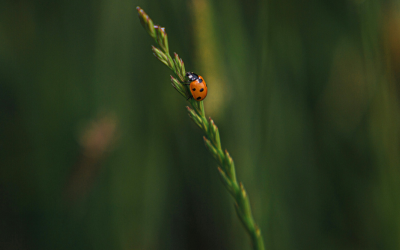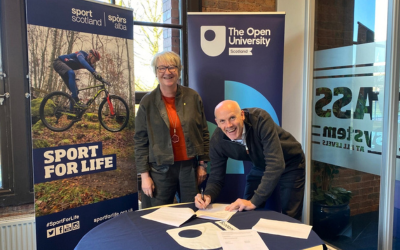Robert Burns – the power of poetry and music
 Author:
Author:
Dr Rosemary Golding is a Staff Tutor and Senior Lecturer in Music at the OU.
The power of Robert Burns’ poetry set to music, particularly for psychiatric care, is explored by Open University Staff Tutor and Senior Lecturer in Music, Dr Rosemary Golding.
On 25 January every year families, friends and communities across Scotland and the world gather to celebrate Burns Night in honour of Scotland’s national poet, Robert ‘Rabbie’ Burns.
From the arrival of the haggis to the sound of the bagpipes, the recitation of Burns’ poems to the communal singing of Auld Lang Syne, Burns Night is full of tradition and meaning, evoking Scottish heritage and history.
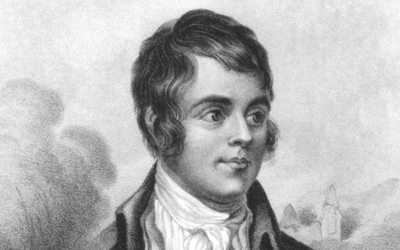 Burns’ poetry and music are deeply connected. Many of Burns’ poems were written to be sung to existing folk melodies, while others were set to new melodies within his lifetime and published either during that period or shortly after.
Burns’ poetry and music are deeply connected. Many of Burns’ poems were written to be sung to existing folk melodies, while others were set to new melodies within his lifetime and published either during that period or shortly after.
The first Burns Night, held only five years after his death, helped to establish the important place of songs using Burns’ poetry in the musical world.
My recent research has investigated some new aspects of that musical world, helping to show just how pervasive and influential musical settings of Burns’ poems were.
I have been exploring the role of music at The Crichton Royal Institution, which was a psychiatric hospital in Dumfries that played an innovative role in the development of psychiatry in the nineteenth century.
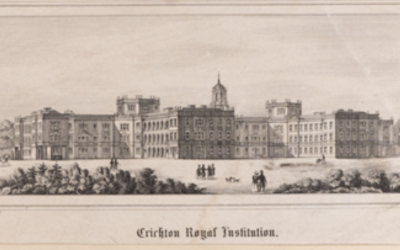 At The Crichton, music was established early on as an efficient and effective way of entertaining and occupying patients. Its archives include two wonderful scrapbooks of concert programmes which help to chart the ways in which music was used, from visiting bands and performers to the institution’s own staff and patients putting on concerts, and eventually the formation of their own band.
At The Crichton, music was established early on as an efficient and effective way of entertaining and occupying patients. Its archives include two wonderful scrapbooks of concert programmes which help to chart the ways in which music was used, from visiting bands and performers to the institution’s own staff and patients putting on concerts, and eventually the formation of their own band.
One of the key features I’ve noticed in these concerts is the inclusion of Burns songs. This is hardly surprising – after all, Burns was in fact buried in Dumfries just down the hill from the Crichton site.
Among the earliest named pieces performed at The Crichton is the song ‘John Anderson, my Joe’, a text written by Burns to an old folksong, performed between the acts of a theatrical production in 1843.
Some concerts at The Crichton had a Scottish theme throughout; a concert programme on Valentines Day in 1851, included several selections of Scottish tunes for piano solo as well as five Burns settings.
Whether or not you enjoy haggis and bagpipes on Burns Night, let’s celebrate the value of music for wellbeing."
We might imagine many patients and staff joining in the well-known songs, bringing a sense of camaraderie and shared identity to the institution. Yet there are also some hints that Scottish music had a particular importance to the work of The Crichton.
These also reflect parallels with some of the ways music is used in the present day to make connections and improve the lives of patients living with mental health illnesses and other conditions such as dementia.
During this period The Crichton was led by Dr William Browne, a physician with a specialism in psychiatry, who was innovative in introducing both music and other arts to the institution. Browne recounted an anecdote:
“A lady after hearing Scotch music retired to bed degraded, mute, fatuous; she arose next morning and remained permanently of right and rational mid, quietly remarking to the physician that the banks and braes o’ bonny Doon had awakened her.”
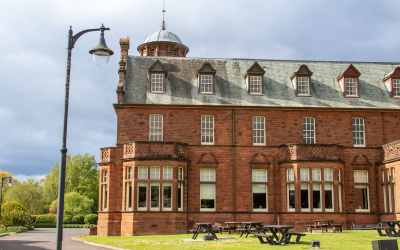 Anonymous authors in the Crichton’s in-house magazine New Moon also considered Scottish music to be particularly effective. One author wrote “the songs of Burns, Tannahill, and many others go home to the heart”.
Anonymous authors in the Crichton’s in-house magazine New Moon also considered Scottish music to be particularly effective. One author wrote “the songs of Burns, Tannahill, and many others go home to the heart”.
There is no doubt that music has the power to evoke strong emotions and memories, particularly music that is closely connected with elements of our identity, feelings of place, traditions or recollection of childhood.
In the nineteenth century – as today – music had the capacity to bring us together in a sense of community and history. So, whether or not you enjoy haggis to the sound of bagpipes on Burns Night, let’s celebrate the value of music for society and wellbeing.
Dr Rosemary Golding’s research covers areas of institutional and cultural history of music in nineteenth-century Britain. She also leads the Psychiatry and the Arts in Nineteenth-century Britain Network.
The Crichton estate is now home to The Crichton Campus, at which The Open University is a partner.
Illustration of The Crichton Royal Institution is from a free museum and library, the Wellcome Collection.
25 January 2024
News
Media contacts
Media enquiries
OU in Scotland Media Relations:
Call 0131 549 7932
OU UK Press Office:
Call 01908 654316
Out-of-hours:
07901 515 891
Visit our OU UK news site
